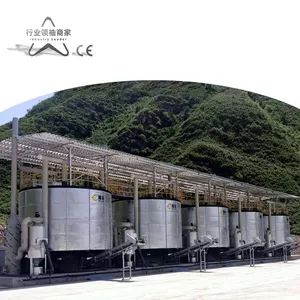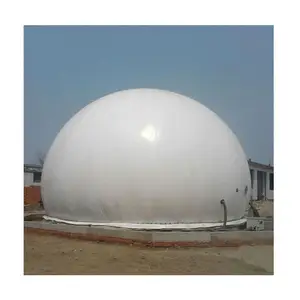Introduction to Biogas Equipment
Biogas equipment encompasses a range of tools and machinery designed for the production, processing, and utilization of biogas, a renewable energy source derived from organic waste materials. This category includes a variety of components essential for the operation of biogas plants, such as biogas burners, biogas flares, and biogas production equipment. The equipment is pivotal in converting organic waste into a sustainable energy form, which can be used for heating, electricity, and as a fuel for vehicles.
Types of Biogas Equipment
The diversity of biogas equipment allows for its application in different scales of biogas production. From small-scale gobar gas machines suitable for individual farms to large-scale biogas plant equipment, the range is extensive. Specialized machinery such as biogas compressors and biogas chillers play a crucial role in enhancing the efficiency of biogas production and storage. Additionally, biogas upgrading equipment is used to purify the biogas to meet the quality standards for various uses.
Applications of Biogas Technology
Biogas technology has a broad spectrum of applications. In the agricultural sector, it is used for the management of livestock waste and energy generation. Industrial applications include the use of biogas for running biogas burners for boilers, which are an integral part of the manufacturing process. The refined biogas is also used in combined heat and power (CHP) systems, providing a reliable source of renewable energy.
Features and Advantages of Biogas Systems
Biogas systems are equipped with features that ensure the safe and efficient production of biogas. For instance, h2s scrubbers for biogas are critical in removing hydrogen sulfide, thus preventing corrosion and ensuring the longevity of the equipment. The use of a biogas slurry dewatering machine helps in managing the by-products of biogas production, making the process more sustainable. The inherent advantages of biogas systems include the reduction of greenhouse gas emissions and the provision of a decentralized source of energy.
Materials and Construction of Biogas Equipment
The construction of biogas equipment involves materials that are durable and resistant to the corrosive nature of biogas. Stainless steel is commonly used in the fabrication of components like heat exchangers and storage tanks. The design of biogas heat exchangers is tailored to maximize energy recovery, further enhancing the efficiency of the biogas system.
Choosing the Right Biogas Equipment
Selecting the appropriate biogas equipment is crucial for the success of any biogas project. Prospective buyers should consider the scale of their operation, the type of feedstock, and the intended use of the biogas when exploring options. It is advisable to consult with experienced biogas equipment manufacturers to ensure that the equipment chosen is well-suited for the specific requirements of the project.









































 浙公网安备 33010002000092号
浙公网安备 33010002000092号 浙B2-20120091-4
浙B2-20120091-4